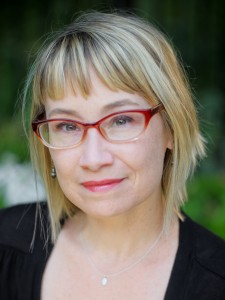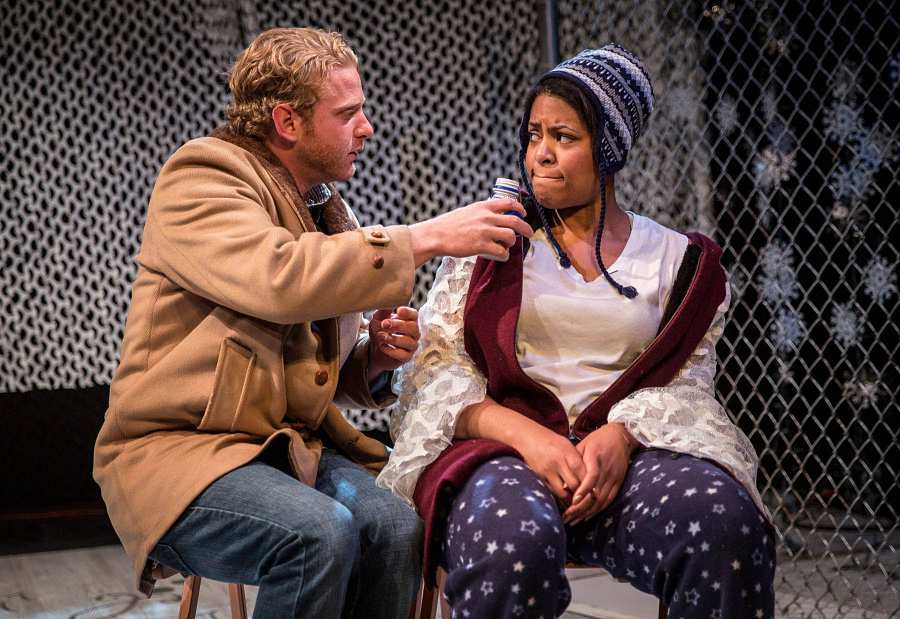CHICAGO: “Playwrights are far more nomadic now than they’ve ever been before,” says Chicago Dramatists artistic director Meghan Beals. But that’s not stopping Beals and her staff from doing a little spring cleaning.
Last week the company, which has been developing and producing new work by emerging playwrights since it was founded in 1979 by the late Russ Tutterow, announced a complete overhaul, starting with adding a subtitle to its name. The theatre is now known as Chicago Dramatists: The Center for New Play Development. Along with this rebranding comes a host of changes, perhaps most notably that the company will no longer produce plays and will instead allot all of its resources to new-work development.
The shift in focus, Beals says, is natural. On one level it’s a recognition of the theatre’s strengths in play development and the nurturing of emerging artists. It’s also a recognition of where the theatre fits in the larger Chicago scene, which has no shortage of heavy-hitting producing companies. “We asked ourselves, ‘What can we do to further Chicago’s ability to be one of the best new play cities in the country?’” she says.

“It’s a response to what contemporary playwrights need,” Beals insists. “Thirty-five years ago, when Chicago Dramatists was born, it was ahead of its time and there was nothing like it. But over the years, playwrights’ needs have changed significantly.”
What exactly has changed for young playwrights? Well, for one, says Beals, a lot of playwrights now tend to be much more collaborative. “They have their own tribes,” she says. “They have their own collaborators already that they can and should bring in the room with them. A lot of writers are writing for specific ensembles or people.”
Each year Chicago Dramatists takes on a number of new resident playwrights. This year, however, the way the residencies are handled is changing. While the theatre will still be providing long-term developmental support to their resident playwrights, they’re capping the residencies at six years (residencies used to go on indefinitely). Playwrights can reapply for an additional three years after the six-year term is up, but after that they’re on their own. “We hope that they will outgrow us,” says Beals, who points out that when all went well, resident playwrights would typically outgrow Dramatists anyway.
This new system, she says, will allow “consistent regeneration of the group” and encourage “an ever-changing group dynamic and community.” In other words: a prod of encouragement, and perhaps a bit of tough love. The 2016-17 resident playwrights are Jay Torrence (Burning Bluebeard, Ivywild), Georgette Kelly (Ballast), Isaac Gomez (La Ruta, The Displaced), Ricardo Gamboa (The Real Life Adventures of Jimmy de la Rosas), and Susan H. Pak (Marabar). All are at least partly based in Chicago.
A public showcase of new resident work is scheduled for Sept. 17, and will be followed by a day-long conference on Oct. 1, which will feature playwriting panel discussions, mini-sessions on the business of theatre, and roundtable discussions on the changing face of new-play development.
The new term limits come alongside an increased relationship with alumni playwrights, who Beals hopes to have serve as mentors to current resident playwrights.
In addition to the adjustments, Dramatists will also add two new initiatives. The first, titled “The Grafting Project,” invites local theatre companies to apply to produce plays written by Dramatists’ resident playwrights. If a company is chosen, they’re given five weeks in the theatre to produce the play. The idea is to strengthen connections between Dramatists and other companies in Chicago—from big-budget companies looking to do an experimental side project to smaller outfits who otherwise wouldn’t be able to afford a space. It’s all about finding a niche in the scene.
The second initiative is a new fellowship program for early-career playwrights who might not be ready for a full residency. “It will hopefully be a bridge between the emerging talent we’ve always tried to nurture and the more established residents,” says Beals. “I’m hoping that if the program takes off, we will be offering the free equivalent of an MFA.”
The first class of fellows will be hand-picked by Beals, who says that some have been working in other theatre roles their entire lives and are looking to focus on their playwriting skills. She also suggests that there’s a place for non-professionals: “It could be somebody straight out of undergrad…It could be a lawyer.” In the end, it’s all about keeping talent in Chicago and allowing playwrights to feel like they have room to grow locally, Beals says.
Beals expresses high hopes for the future of Chicago theatre. “There should be no reason why people have to go!” she exclaims. In the digital age, it seems, a focus on home—and on the idea of a career arc revolving around a single city—has become new again. And that’s what Chicago Dramatists is doing: embracing a new idea, just as they’ve embraced new playwrights since their founding in 1979. After 37 years of helping young playwrights grow, Chicago Dramatists is growing too.


